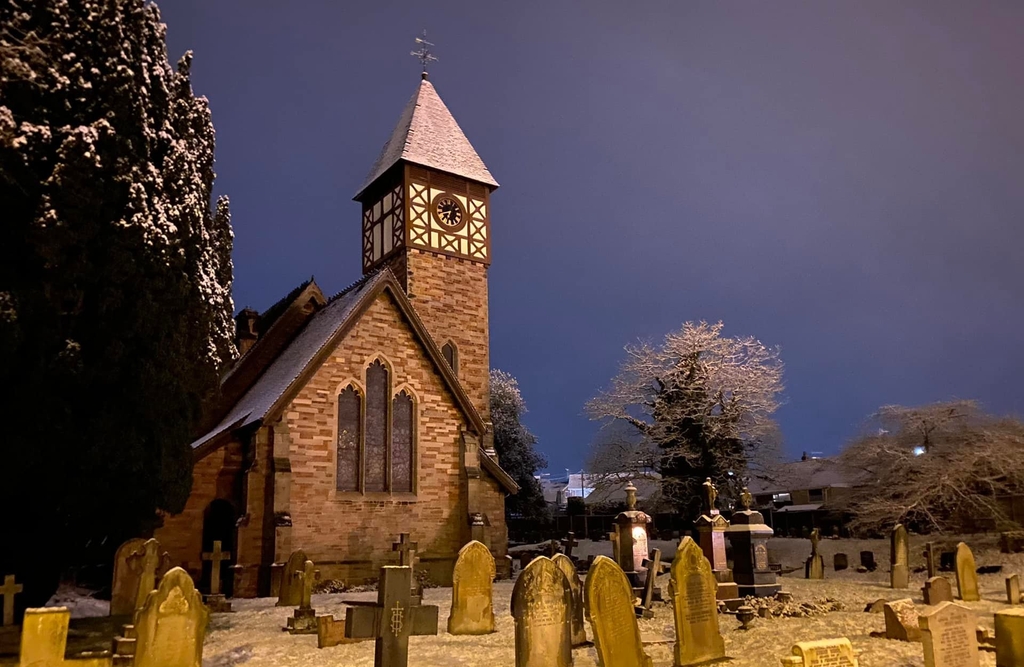With the catastrophic news coming from the Ukraine, the fact of Fairtrade Fortnight coming and going has been almost lost, so that's where I'll start today.
Fairtrade exists to try to do what the rich and powerful do not want: to offer a fair chance at life for people and families who are trying to make, grow and sell basic items to survive and better themselves. For many years, Fairtrade has either gone directly or worked with trusted partners to build up relationships with growers and makers in some of the poorest parts of the world. These people are totally exploited by Western companies and by governments, never offered a reasonable return for their efforts as those companies seek to inflict the lowest prices on them, whilst charging the maximum prices to customers in the West.
Fairtrade has slowly built up these relationships and established links with the Western companies, trying to show them the value of being able to brand their products as 'Fairtrade' in exchange for slightly improved prices and conditions of work for their poor suppliers in the developing world. Slowly, those people have been able to build co-operatives (as British workers did over a hundred years ago, when many large companies became co-operatives before being swallowed up by private capital and lost to their worker-owners). In turn, they have been able to generate tiny surpluses that have allowed them to improve their lives and the educational opportunities for their children, otherwise trapped in an endless cycle of hard work of poverty.
In recent years, some large Western Corporations have decided that even Fairtrade is too much for them to swallow, even with its small costs. We have seen Nestle abandon aspects of its Fairtrade relationship and recently Starbucks, which gets all its coffee from poor countries, announced that it was ditching Fairtrade for all the coffee it sells in the UK. They are not alone. The relentless search for bigger profits means that ethical behaviour will always be questioned by company directors, anxious for ever larger bonuses. The only defence is for each of us to show that we value Fairtrade by buying goods with the Fairtrade logo and by boycotting companies that drop Fairtrade, whatever reasons they give. Incidentally, those reasons usually include that all their suppliers will be better looked after if Fairtrade is replaced by some other method.
When Jesus said that the meek shall inherit the earth, he was speaking directly to us about these impoverished growers. He lived at a time when the people of Israel were overwhelmingly agricultural workers and when hunger was a constant in life. Israel had become something of a breadbasket for Rome, the military occupier, and vast quantities of produce were shipped to Rome, leaving the people of Israel on a subsistence diet. Starvation was an ever-present threat and most of the people were not Roman citizens; they therefore had fewer rights. Slavery was everywhere. For Jesus to say those who were most oppressed would inherit the earth, that was a direct challenge to the occupying power and to all those who worked with it to take away food grown by the poor to sell it to the rich. Notice the similarity with today? Jesus, who had no earthly power at all, was saying that those poor people, not the rich and powerful, would get everything. Jesus could have been the Fairtrade spokesman of his day, telling the people what was really important and telling those in power that they should care for those who were being oppressed and who were in need. Jesus did not say that the poor should take from the rich; what he was saying was that God wanted the rich to give to the poor what they needed.
Let's bring that into the present: it might not feel like it with rising inflation but today you and I are the rich. Even the poorest person in the UK is far wealthier than these people in countries where Fairtrade operates. Even if a UK person is homeless and has no money, they still have the safety nets of the state, including the NHS, the benefits system, the education system and the emergency services to help and protect them. Where Fairtrade works, little or none of this is available.
Your decision on whether to support these people occurs every time you walk into a shop or look to buy online. It takes a few seconds to check for the Fairtrade logo on goods. It takes another few seconds to remember those companies that have decided to turn their backs on Fairtrade. It's your choice. Jesus knew that when he urged us to love our neighbours as ourselves. He knew that anyone could just say, 'No, I'll treat my neighbour worse than I would want to be treated because that suits me better.' He just hoped, with all the love that he had for each one of us, that we would make the right choice, the righteous choice, the choice that someone made in the image of God should make.
It's up to you. Amen.

















